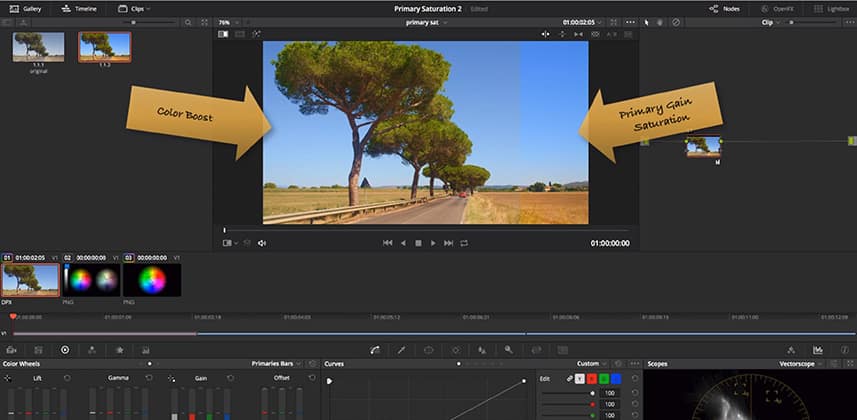| Series |
|---|
Valuable color grading Insights that aren’t on Mixing Light
This Insight is part of a Mixing Light series rounding up important non-Mixing Light articles, tutorials, and podcasts. They are culled from my TaoOfColor.com weekly Color Grading Newsletter (click through to read the most recent edition and subscribe). In this quarterly series I gather non-Mixing Light stories that I think our members need to see. Craft, workflow, technique, gear – if I think an item published in the Newsletter deserves special mention and recognition then I put them in this series. Enjoy!
With this posting, ‘Elsewhere on the Web’ is now an official series on the Library. As I mentioned in the first edition of this series, a part of me feels like this is a bit of cheat since you come to Mixing Light for original content – and here I am sharing the work of other people. But the fact is, I spend a ton of time curating those voices for my weekly newsletter, and sometimes what they’re saying I wish we said here first on Mixing Light.
About these six Insights
The first item in today’s list is a perfect example of something I wish was said on Mixing Light, “Managing Saturation In DaVinci Resolve”. This is an outstanding tutorial explaining a fundamental concept of DaVinci Resolve – and putting it into action that’s both creative and non-intuitive.
And if you’re wondering, yes – I prioritized this list. They are not randomly listed. The higher up an item appears, the more emphatic I feel about you watching / reading it. And the first item in the Summer 2018 Edition is Do Not Miss if you’re color correcting in DaVinci Resolve. That’s enough preamble. Let’s get to it!
About the links on this page: When you click on a link for one of these sources, it opens up a new browser window or tab. FYI.
1. Managing Saturation (without using Saturation controls)
DaVinci Resolve is based around YRGB image processing; with the Y-channel being your Luma, or brightness-only, channel. But this confuses many end-users. Here’s the #1 question asked in this regard:
What’s the difference between using the Exposure Master Wheel vs the Y-only white bar in the Primaries Bar interface?
In this video colorist, trainer, and CSI founder Kevin Shaw tackles how to use YRGB processing to control saturation levels. He does this using both the primary wheels and custom curves – isolating the Y-only channel. It’s a fantastic technique that’s subtle, effective and puts YRGB image processing to full use. And it’s a great alternative to using the Saturation control, which can induce harshly saturated images – that this technique mitigates.
Member Content
Sorry... the rest of this content is for members only. You'll need to login or Join Now to continue (we hope you do!).
Need more information about our memberships? Click to learn more.
Membership optionsMember Login


